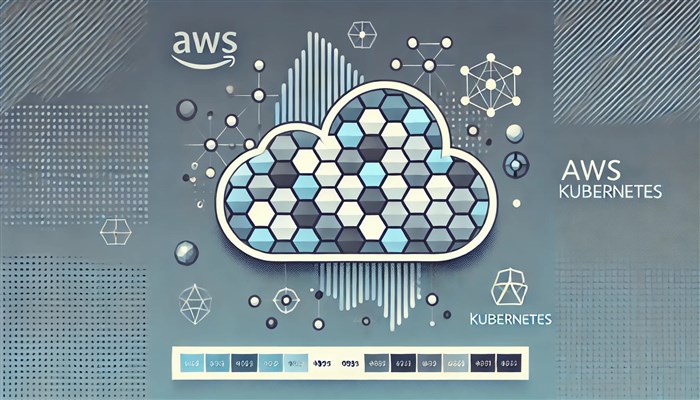Unable to find what you're searching for?
We're here to help you find it
In today’s cloud-driven world, Kubernetes has become the cornerstone of container orchestration, enabling businesses to deploy, manage, and scale applications efficiently. Amazon Elastic Kubernetes Service (EKS), the AWS-managed Kubernetes offering, simplifies the adoption of Kubernetes by eliminating much of the operational overhead.
This guide introduces AWS Kubernetes and focuses on Amazon EKS, breaking down its features, benefits, and use cases to help beginners understand how to leverage it for containerized workloads.
Kubernetes, often abbreviated as K8s, is an open-source platform that automates the deployment, scaling, and operation of containerized applications. Containers are lightweight, portable units that package applications and their dependencies, ensuring consistent performance across environments.
Key features of Kubernetes include:
While Kubernetes provides immense power, managing it in a production environment can be complex. That’s where AWS EKS comes in.
Amazon Elastic Kubernetes Service (EKS) is a fully managed service by AWS that simplifies running Kubernetes on the AWS cloud. It takes care of the operational tasks like managing Kubernetes control planes, patching, and scalability, allowing developers to focus on their applications.
How Amazon EKS Works
EKS provides a Kubernetes control plane that is:
Using Amazon EKS, businesses can seamlessly deploy Kubernetes clusters without worrying about the underlying infrastructure management.
EKS automates complex tasks such as setting up and maintaining the Kubernetes control plane, allowing teams to focus on application development.
EKS integrates seamlessly with other AWS services, such as:
EKS uses IAM for authentication and integrates with AWS Key Management Service (KMS) for secure data encryption. It also supports Kubernetes RBAC (Role-Based Access Control) for fine-grained permissions.
EKS supports horizontal scaling, allowing you to add or remove worker nodes based on demand. The control plane is highly available, ensuring minimal downtime.
With AWS Outposts and EKS Anywhere, businesses can extend Kubernetes clusters to on-premises environments, enabling hybrid cloud solutions.
Setting up Amazon EKS involves a few key steps:
Worker nodes are EC2 instances or Fargate tasks that run your containerized applications. You can configure these through an Auto Scaling group.
EKS clusters are highly available across multiple AWS availability zones, ensuring resilience and fault tolerance.
EKS supports multiple Kubernetes versions, allowing users to upgrade clusters at their own pace.
EKS can automatically provision and manage worker nodes, ensuring they are always patched and secure.
Using AWS Fargate, EKS allows developers to run containers without managing the underlying servers.
EKS is ideal for deploying microservices, where each service is containerized and can scale independently.
Data scientists can use Kubernetes for deploying ML models on GPU-powered instances. EKS integrates well with Amazon SageMaker and TensorFlow.
Kubernetes on AWS streamlines continuous integration and deployment workflows, reducing the time to market.
With EKS Anywhere, organizations can run Kubernetes clusters on-premises for specific use cases while leveraging the AWS cloud for scalability.
Conclusion
Amazon EKS brings the power of Kubernetes to AWS, providing a managed solution for running containerized applications at scale. By eliminating the complexity of Kubernetes management, EKS allows businesses to focus on innovation and efficiency.
For beginners and professionals alike, learning how to use AWS Kubernetes is a valuable skill in today’s cloud-native world. Whether you’re building scalable microservices, deploying machine learning models, or optimizing CI/CD pipelines, Amazon EKS is a reliable platform to support your goals.
At Koenig Solutions, a leading IT training company, we provide comprehensive AWS Kubernetes training courses that can help you master this powerful platform. Whether you're a beginner or an experienced professional, our courses are designed to equip you with the skills you need to leverage AWS Kubernetes to its fullest potential.

Aarav Goel has top education industry knowledge with 4 years of experience. Being a passionate blogger also does blogging on the technology niche.










